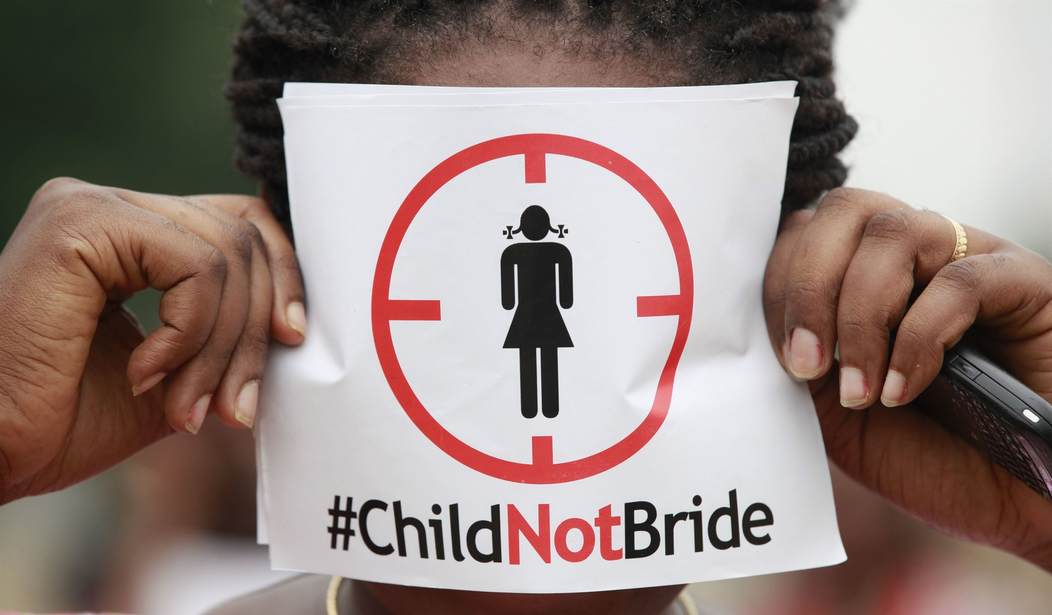Wyoming is one of eight states in America that still doesn’t have a law setting a minimum age for marriage. That may be about to change because a bill that recently passed in the state House of Representatives would ban marriages for all children below the age of 16 and require those under 18 to provide consent from a parent or guardian before getting hitched. But many Republicans in the state are pushing back hard on the measure based on matters of parental rights and freedom of religion. Thus far there has been no indication as to whether or not Governor Mark Gordon would sign the bill or not. (Newsweek)
The Wyoming Republican Party is seeking to kill a bill working its way through the state Legislature proposing to raise the state’s legal marriage age to 16, arguing that putting “arbitrary” limits on child marriage interferes with parental rights and religious liberty.
The bill—which already passed the Republican-controlled Wyoming House of Representatives on a 36-25 vote late last month—proposes banning state residents from marrying anyone under the age of 16, while requiring anyone under the age of 18 seeking to get married to receive written consent from their parents under the eye of a competent witness.
The debate has been a longstanding one in Wyoming.
Before digging into this, it’s worth pointing out that the way states handle this question isn’t a typical left versus right situation. The states that still have no legal minimum age for marriage include very blue states like California and Washington and some of the reddest states such as Oklahoma and West Virginia.
Were I a resident of Wyoming, my initial gut reaction would be to oppose this law, but it’s a complicated issue. Dating back to the era of the gay marriage debate more than a decade ago, I have always maintained the widely unpopular libertarian opinion that the government should not be in the business of marriage.
But I also consistently included a couple of exceptions to that rule. Specifically, I’ve held that the government has a responsibility to protect the most vulnerable among us. With that in mind, I find it appropriate for the government to protect children and those lacking the cognitive ability to provide informed consent by preventing marriage from being used as a fig leaf for sexual assault or abuse. This can be accomplished by having the parent or guardian of the child or patient provide written consent.
Based on that belief, I suppose I would support the portion of the bill dealing with those who are under 18 in that regard. As to the flat ban on marriage for those under 16, I find that more problematic. Having children aged 15 and younger getting married is obviously not the ideal situation, at least to my way of thinking. It used to be far more common, though. In fact, my grandparents married at 15 and 16 and they were still together when my grandmother passed away at the age of 98. But the world has changed a bit since then.
Still, there are times when such a marriage may be the best option available. If a fifteen-year-old girl winds up being impregnated by her sixteen-year-old boyfriend, a quick marriage could be the surest path to the child being brought into the world in a two-parent home. And the child could help stabilize the marriage over the long run. Again, that’s not an ideal scenario and the parents should be asking themselves how the children were allowed to act so recklessly. But the heart wants what it wants (as the saying goes) and hormones drive teenagers in a powerful way.
I think Wyoming might have an easier path forward if they dropped the total ban on marriage before sixteen, but implemented the requirement for the consent of a parent or guardian for weddings involving anyone under 18. We could also stay here and debate what the legal age of consent should be until the cows come home, but I’ll leave that debate for another day.








Join the conversation as a VIP Member